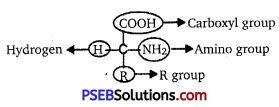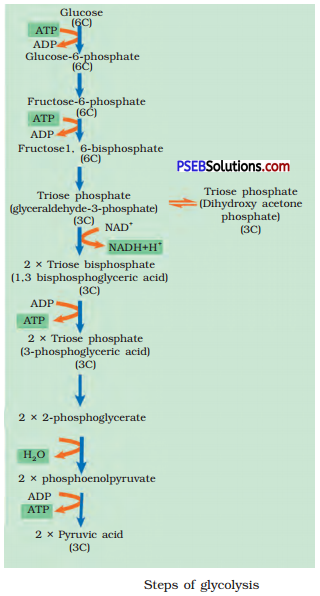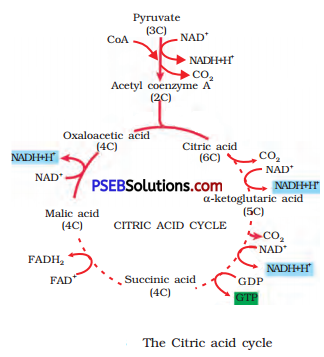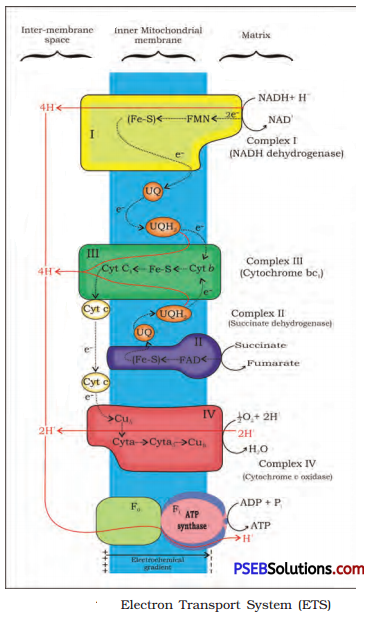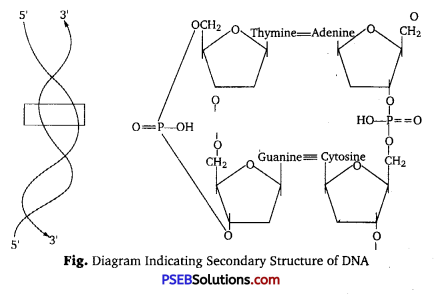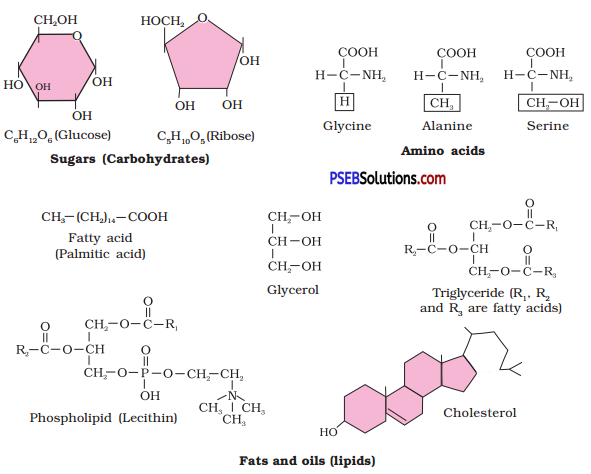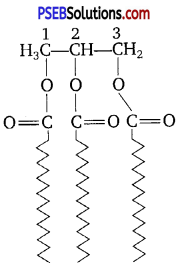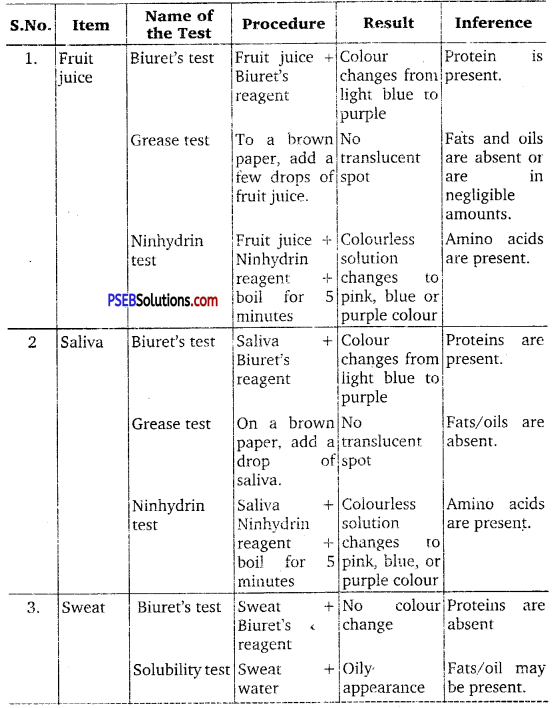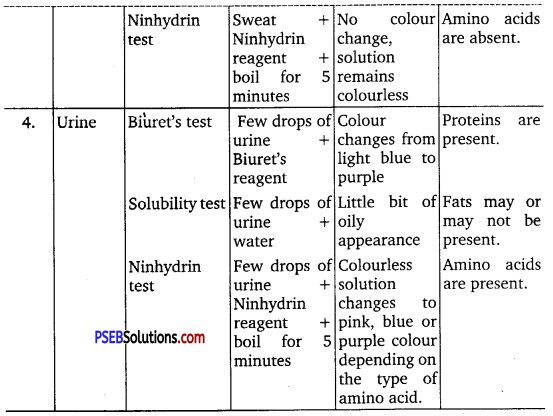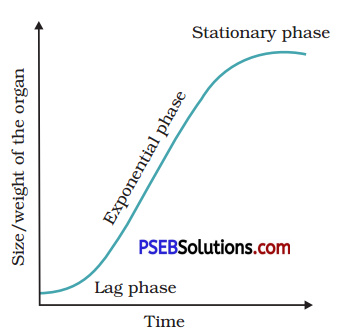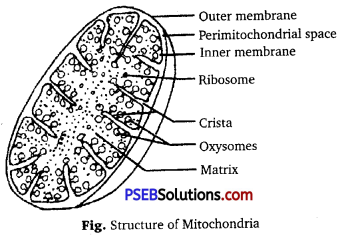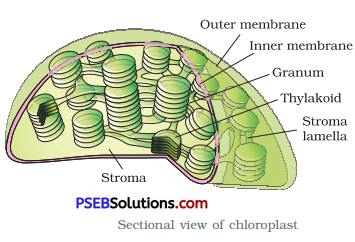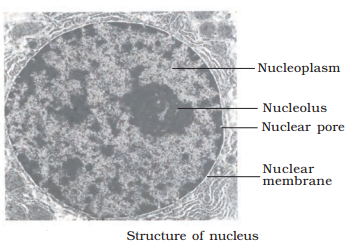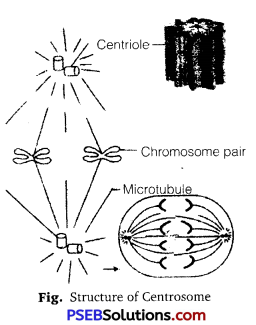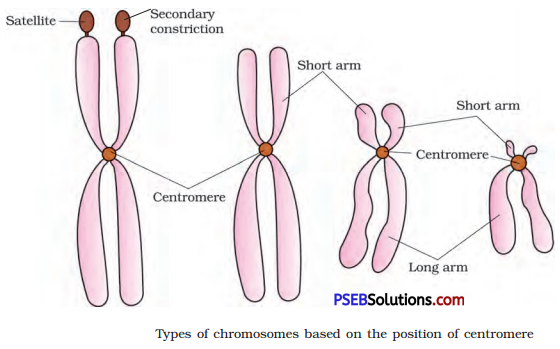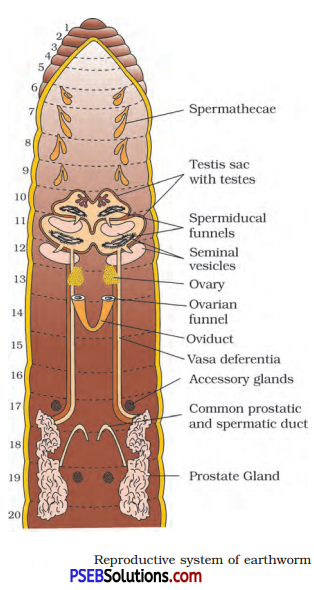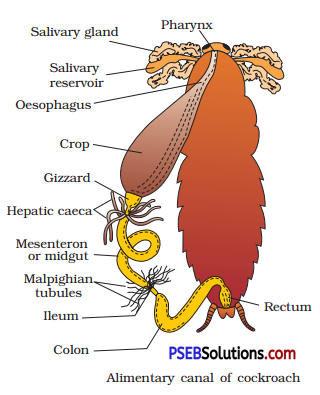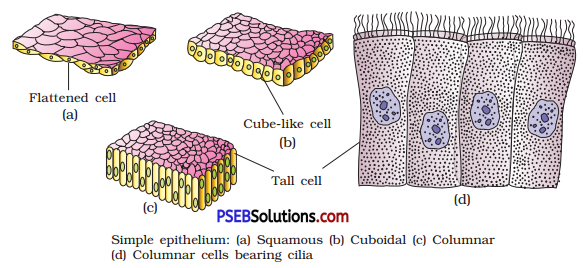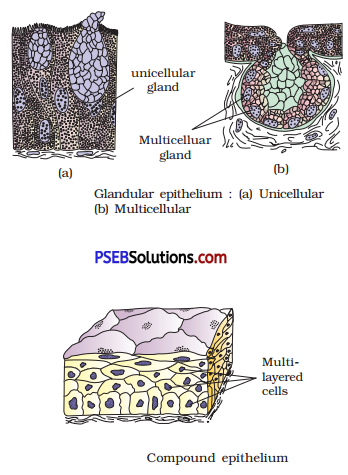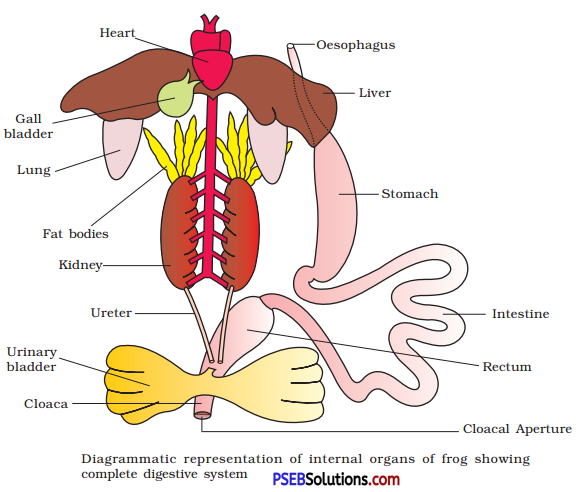Punjab State Board PSEB 11th Class Biology Important Questions Chapter 14 Respiration in Plants Important Questions and Answers.
PSEB 11th Class Biology Important Questions Chapter 14 Respiration in Plants
Very short answer type questions
Question 1.
Why does anaerobic respiration/fermentation yields less energy than aerobic respiration?
Answer:
It happens due to incomplete oxidation of the substrate.
Question 2.
Write the overall equation of respiration.
Answer:
C6H12O6 + 6O2 → 6CO2 + 6H2O + Energy
Question 3.
Name two openings in plants through which exchange of gases takes place?
Answer:
Stomata and lenticels.
Question 4.
Write the reaction where substrate-level phosphorylation takes place in glycolysis.
Answer:
Substrate level phosphorylation takes place during the following reaction
- When 1, 3-bisphosphoglycerate is converted into 3-phosphoglycerate.
- When phosphoenolpyruvate is converted into pyruvic acid.
Question 5.
List two instances where lactic acid is formed by fermentation.
Answer:
Instances, where lactic acid is formed by fermentation, are given below:
- During fermentation by lactic acid bacteria.
- During strenuous exercise, in the striated muscles in humans.
Question 6.
Mention the step of citric acid cycle, which is not mediated by dehydrogenase enzyme.
Answer:
Conversion of oxaloacetic acid to citric acid is not mediated by dehydrogenase enzyme.
![]()
Question 7.
At which step of respiration, hydrogen of NADH2 is used?
Answer:
The hydrogen atoms accepted by NADH2 during glycolysis are introduced to route I of ETS. In this route 3 ATP molecules are produced.
Question 8.
Mention the number of protons that passes through complex V for the synthesis of 2 molecules of ATP.
Answer:
Two pairs of protons (i.e., 4) passes through complex V for the synthesis of two molecules of ATP.
Question 9.
Name the inhibitor of oxidative phosphorylation.
Answer:
Oligomycin.
Question 10.
Name the unit of oxidative phosphorylation.
Answer:
Oxysomes.
![]()
Question 11.
F0 – F1 particles participate in the synthesis of ……………………. [NCERT Exemplar]
Answer:
ATP (Adenosine Triphosphate), the energy currency of the cell.
Question 12.
What do you mean by respiratory balance sheet?
Answer:
Respiratory Balance Sheet
The calculations of the net gain of ATP for every glucose molecule oxidized, can be made only on certain assumptions.
But this kind of assumptions are not valid in a living system for the following reasons :
- All pathways work simultaneously and do not take place one after the other.
- Substrates keep entering the pathways and are also withdrawn from the pathways.
- ATP is utilized as and when needed,
- Rates of enzyme actions are controlled by multiple means.
![]()
Short answer type questions
Question 1.
Why ATP is called an energy currency?
Answer:
The energy produced during various steps of cellular respiration is stored in the form of ATP. This is later utilized on an SOS basis. So, ATP is also called as energy currency.
Question 2.
There is no special respiratory organ in plants, yet plants efficiently manage exchange of gases. Justify.
Answer:
Every part of plant manages its gas exchange need. There is no exchange of gases between different organs. So unlike animals plants do not need special respiratory organs to facilitate exchange of gases. In leaves the exchange of gases takes place through stomata, while in stems it takes place through lenticels.
Question 3.
How glycolysis takes place in anaerobic environment?
Answer:
Glycolysis is the breakdown of glucose into pyruvic acid and it does not need oxygen. So in all living beings, irrespective of them being either aerobic or anaerobic glycolysis takes place. In fact glycolysis is the first step towards oxidation of glucose and oxidation takes place either during anaerobic respiration or during aerobic respiration.
Question 4.
The maximum concentration of alcohol produced by natural fermentation is 13%. But most of the alcoholic preparations for human consumption contain more than this percentage. How this higher percentage is achieved?
Answer:
The higher percentage of alcohol is achieved through distillation of the liquid, which gives pure alcohol as well. The boiling involved in distillation helps evaporate the liquid part and higher concentration is achieved.
![]()
Long answer type questions
Question 1.
Oxygen is critical for aerobic respiration. Explain its role with respect to ETS.
Answer:
- Oxygen is an essential requirement for aerobic respiration because an element of strong electronegativity to pull the electrons down the chain is needed.
- It ensures that protons are pumped into the outer lumen of the mitochondria, where they can come down their concentration gradient through ATP-synthase making ATP.
- The oxygen picks up electrons and protons, thus forming water. As the electrons in the ETS are used to do work, the electrons lose energy and reach a point at the end of the ETS, where they have to be gotten rid of.
- The scheme the cell uses to do this is to combine the electrons with hydrogen ions and oxygen to produce water.
